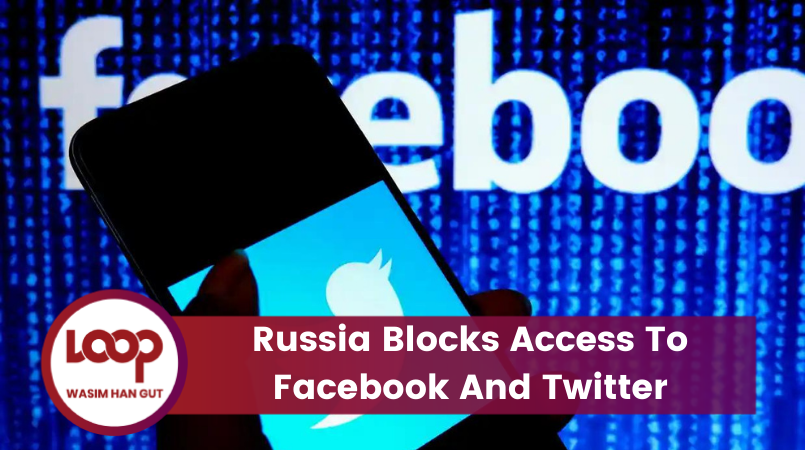
Move to block Facebook and Twitter comes as the government passed a bill the criminalizes ‘fake’ reports against the war.
Russia has completely blocked access to Facebook in retaliation for the platform placing restrictions on state-owned media.
The Russian state communications regulator, Roskomnadzor, later said it had also restricted access to Twitter.
Facebook and its sister platform Instagram have removed Russia Today (RT) and Sputnik from their output in the European Union this week and did the same with the UK on Friday, which drew an immediate response from the Russian communications regulator.
The Roskomnadzor watchdog said there had been 26 cases of discrimination against Russian media by Facebook since October 2020, with access restricted to state-backed news services like Russia Today and the RIA news agency. Last week the regulator had announced a “partial” block of Facebook, claiming that the social network had violated the “rights and freedoms of Russian nationals”.
Nick Clegg, the president of global affairs at Facebook’s parent, Meta, said blocking the platform would cut off “millions of ordinary Russians” from reliable information, deprive them of communications with friends and family and mean they were “silenced from speaking out”. He said: “We will continue to do everything we can to restore our services so they remain available to people to safely and securely express themselves and organize for action.”
The move comes as Russia on Friday passed a bill that criminalizes the intentional spreading of what Moscow deems to be “fake” reports.
The bill, quickly rubber-stamped by both houses of the Kremlin-controlled parliament and signed by Putin, imposes prison sentences of up to 15 years for those spreading information that goes against the Russian government’s narrative on the war.
In response, multiple outlets said they would pause their work inside Russia to evaluate the situation. Among them, CNN said it would stop broadcasting in Russia while Bloomberg and the BBC said they would temporarily suspend the work of their journalists there.
Russia is broadening efforts to control the spread of information on the invasion of Ukraine and to move against independent news sources. It follows the blocks imposed earlier on Friday on the BBC, the US government-funded Voice of America and Radio Free Europe/Radio Liberty, German broadcaster Deutsche Welle and Latvia-based website Meduza.
Meta said on Friday that it was blocking RT and Sputnik in the UK. It followed a request from the culture secretary, Nadine Dorries, in a letter a day earlier to TikTok, Twitter and Meta. Meta has already blocked the news organisations across the EU.
“Earlier this week, we announced that we’d be restricting access to RT and Sputnik across the EU. Consistent with that action, and after a request from the UK government, we will also be restricting access to RT and Sputnik in the UK at this time,” said a Meta spokesperson.
Meta announced on Monday that it had taken down a disinformation network targeting people in Ukraine, comprised of about 40 accounts, pages and groups on Facebook and Instagram.
In a blogpost, Nathaniel Gleicher and David Agranovich, Meta’s head of security policy and director of threat disruption respectively, said the networks were run from Russia and Ukraine.
“They were operated from Russia and Ukraine and targeted people in Ukraine across multiple social media platforms and through their own websites. We took down this operation, blocked their domains from being shared on our platform, and shared information with other tech platforms, researchers and governments,” they said.
The Associated Press contributed reporting
Story first published on The Guardian
